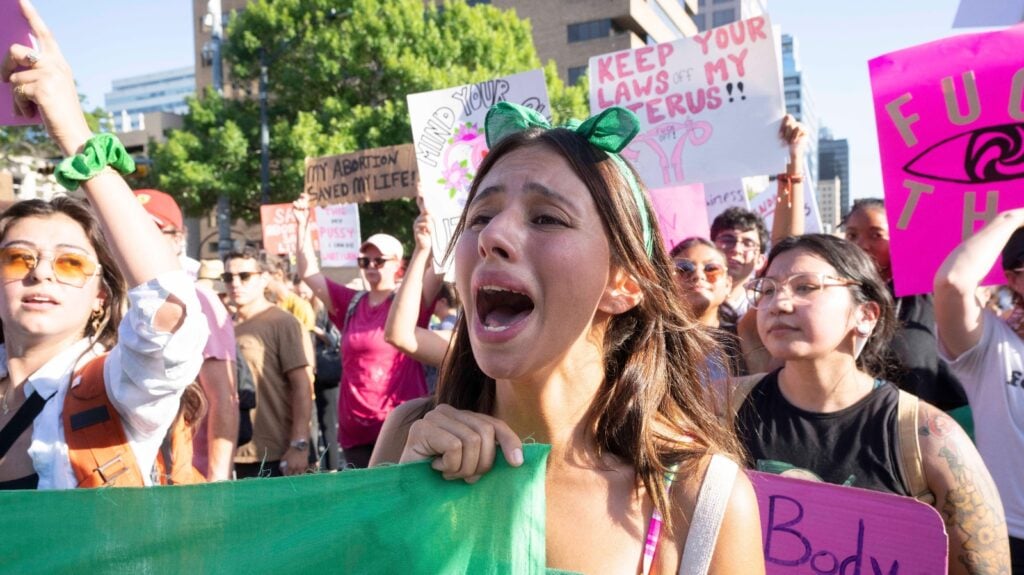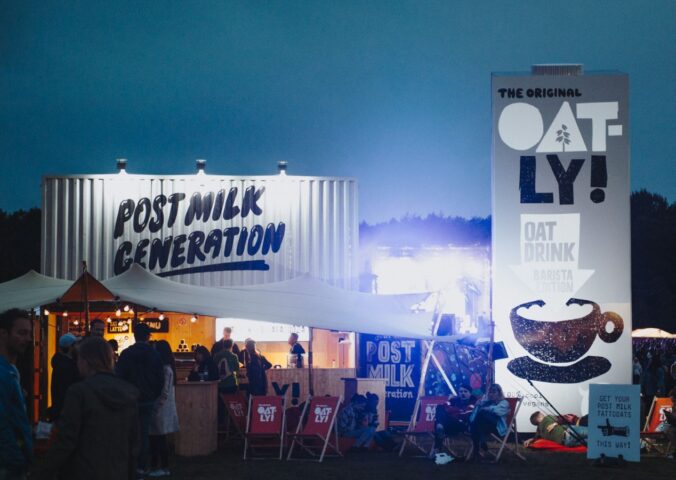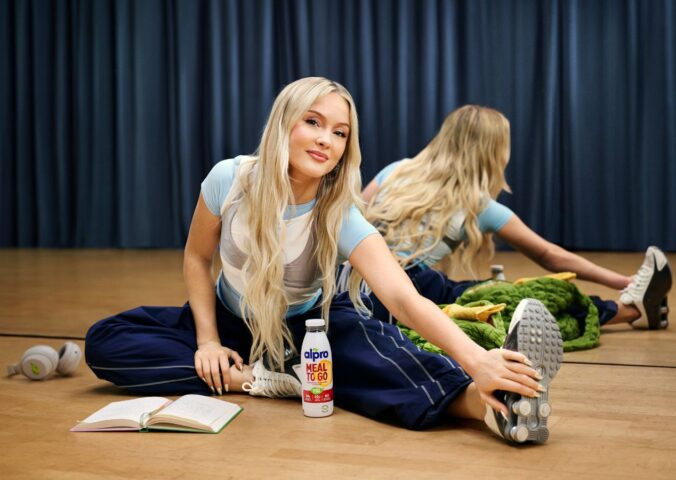One week ago, the fight for women’s rights, and all who can become pregnant, took a crucial blow in America. The Supreme Court reversed the nearly-fifty-year precedent of Roe v. Wade, a 1973 court case that mandated abortion access across all fifty states.
This effectively wiped out reproductive rights for nearly half of the United States population. The case, which has torn apart the fundamentals of what it means to be an autonomous human being, will have lasting effects on the fight for all rights, including animal rights.
Becoming pro-choice
Like most of you, I was not born a vegan. But I was born with a reproductive system capable of pregnancy.
At a young age, I became acutely aware of what it means to operate in a world where your entire life, and body, can be changed at any moment by a pregnancy, regardless of whether it was a wanted or unwanted experience. I carried this fear with me through my teenage years and early years of adulthood, eventually volunteering at Planned Parenthood, working the phone system for teenagers in crisis.
It was during that time that the unthinkable situation hit me. At age 20, I became pregnant. There I was, halfway through university, a reproductive health advocate and mentor to young people, and pregnant myself.
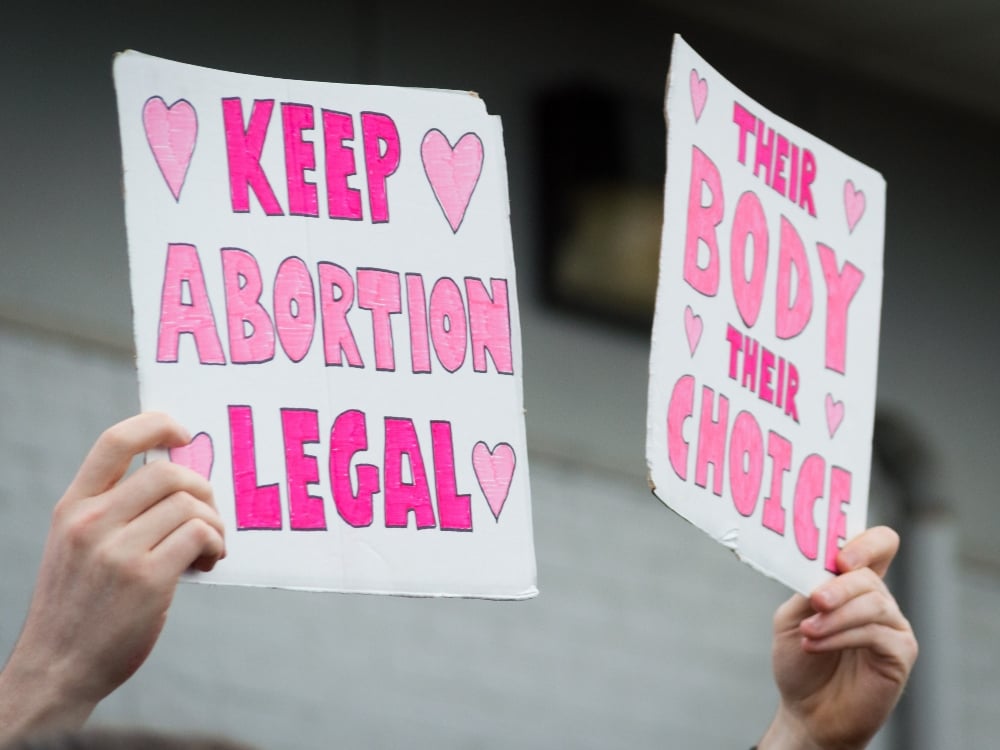
As a child of modest, hard-working parents with no high school education, their only dream was for me to graduate university. But suddenly, my entire life plan was thrown into the air. I knew right then and there that this was not my intended life journey. This was not the way to achieve my planned impact on the world. There was only one solution right for me: to choose not to continue with my pregnancy.
Not long after that decision, I started my early career in public charity at United Way. I oversaw more than three dozen education and health programs across an extensive footprint of predominantly rural or Black communities in the Southern United States. What I saw during my three-year tenure forever changed my view of what it means to be a marginalized woman in America.
A core-shaking realization
On a weekly basis, we’d serve teenage girls, some not even in high school, experiencing pregnancies. They had no understanding of their basic reproductive anatomy, because, despite being the third-largest state in America, the state we operated in has no mandated sexual education curriculum. Many fell pregnant from older men in the community, while some were encouraged to become mothers by their elders—often former teenage parents themselves—who felt they had no higher prospects in life.
One particular woman, whom I will never forget, came in early one morning to apply for our holiday toy drive. She handed me five birth certificates from her children, each with a different father listed. Looking at her application, I was shocked to see that she was only 19 years old and had birthed her first child in elementary school.
Then, she looked at me and asked if I could fill in the application for her because she did not know how to read or write—including her own children’s names. At that moment, I felt my core shake.
This woman was not free. She had been trapped in circumstances out of her own control since the day she was born. She had been exploited for her fast-maturing body, only to be left in a system that did not care for her nor her five fatherless children, simply because she happened to be a woman. Her story is only one of the millions of women in similar circumstances across America and beyond.
The treatment of animals
It was not until a few years later, when I went vegan, that I felt that same core-shaking rage.
Most of us have gone through the stages of grief, disbelief, and anger that face us when we learn the horrors of factory farming and the treatment of billions of animals on the planet. But what stood out to me was the treatment of female animals in our agricultural system.
Mother pigs are trapped in gestation crates where they are unable to stand up, as they are used to breed countless piglets destined for slaughter. Cage-laying hens are forced to produce our eggs in despicable conditions, before being declared as ‘spent’ and slaughtered when their reproductive system no longer meets our consumer needs.
Then, of course, there is the dairy industry, which forcibly impregnates female cows repeatedly. They cry for their stolen calves and are then used for their milk production. That’s until they, too, are rendered ‘insufficient’ and sent to slaughter at four or five years of age (the natural lifespan of a cow is nearly 20 years).
Like most people, it took time for me to grapple with the reality that the treatment of female animals could be real in an advanced society like ours. But it is.
By rolling back reproductive freedom in the United States, we are taking away the most basic right for us to choose our own destiny. The precedent set by determining that human beings do not have the right to their own body only perpetuates a reality where animals are not given their right to life.
A society that does not believe that women or people with uteruses are equal will never believe that animals are equal.
Holding women back from changing the food system
Removing the right to reproductive freedom will also hold back women in their work to create a better food system.
As I write about in my book “The Future of Food is Female,” our best chance at reinventing the food system and transitioning away from industrial animal agriculture is to empower women leaders, specifically founders.
But the reality is that women founders already face countless barriers. These range from receiving less than 3 percent of total investment from venture capitalists to gender bias and discrimination. While about half of the founders I work with are thriving as mothers and founders, many have chosen not to become a mother – the key word is “choice.”
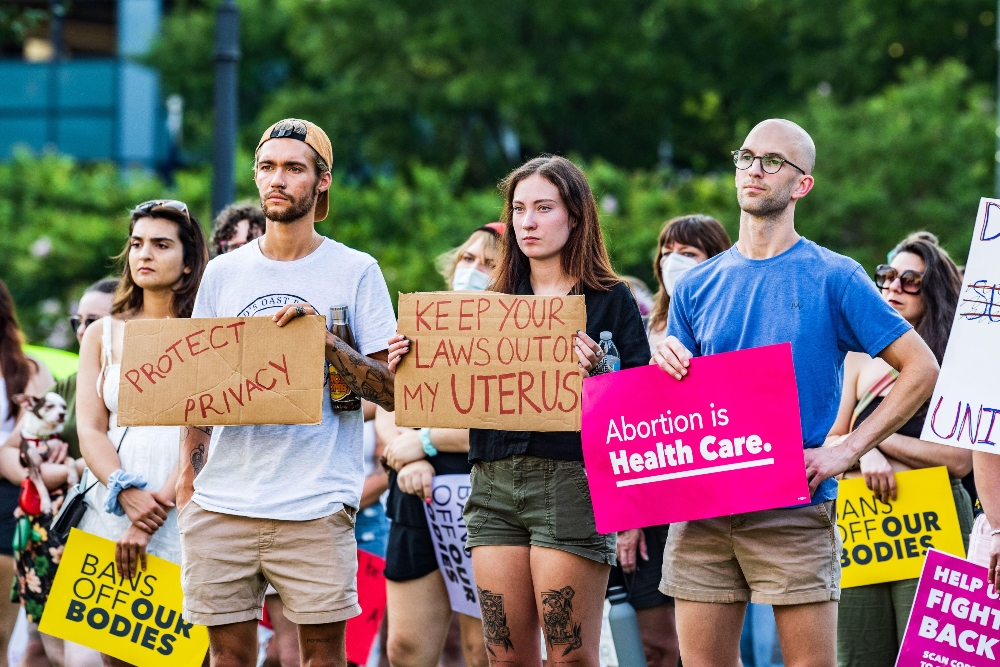
By removing abortion access for those who want it, women become less likely to graduate college or start a business. They also face a significantly higher risk of experiencing financial distress, bankruptcy, and eviction when turned away from a wanted abortion.
In a world where pregnancy can occur without consent, it is our moral imperative to make motherhood a choice.
I realize abortion is not an easy topic for most of us and that your personal choice may differ from that of someone else. But, as vegans, we believe that all sentient beings deserve the right to choose their own destiny, human or not.
When we allow politicians and courts to peel away that fundamental right for women, we are thrust farther away from the kind and just future that we seek. It is imperative that we stand up for what is right.
At my organization, Vegan Women Summit, we are coming together to support abortion access across the United States. While support may look different for all of us, each of us can do our part and I promise you can make a difference. After all, as Mr. Rogers says, in times of trouble: look for the helpers.
If you purchase something through a link on our site, Plant Based News (PBN) may earn a commission, which helps us to provide our free services to millions of people each week.
